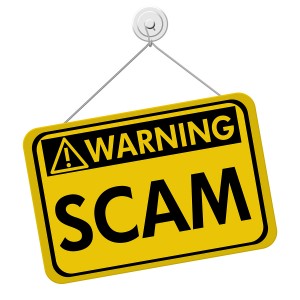Apple Inc. (NASDAQ:AAPL) is making considerable profits from its App Store, as recent sales figures show. But the tech giant’s gains in this area may end up causing it more problems than they are worth due to the rise of scams. At least two huge successes of the App Store are already associated with scammers – one certainly, and the other probably. Others are undoubtedly either already in place, or in development.
One possible scam is the game “Flappy Bird,” created by a Vietnamese programmer named Dong Nyugen. The game sat idle on the App Store for many months before suddenly rocketing to success with a flurry of sales. Thousands of nearly identical feedback posts were left for the game, which was neither advertised nor cross-linked. Other games by Mr. Nyugen showed parallel rises, with basically the same pattern of peaks and dips in popularity.
Rather suspiciously, Mr. Nyugen took down Flappy Bird himself as soon as its success story appeared in the international news, claiming that he is just a “simple man” and that the app was ruining his life. One might question how $15,000 of legitimately earned income daily could ruin anyone’s life, though the statement might make more sense if the designer feared exposure as a scammer. The jury is still out on Flappy Bird, and it will likely never be revealed whether its success was gained honestly or by fooling the App Store’s download rank algorithms.
Another game, this one fully known to be a scam, is “Red Bouncing Ball Spikes,” made by a mysterious Canadian programmer going by a variety of pseudonyms. It is believed that this individual bought his own app with several thousand spoofed Apple IDs, downloading the game 20,000 times in one day to shoot it to the top of the charts. Once there, people buy it, seeing that it is so popular and being tricked into thinking that it is amazingly good, and the scammer soon makes back their investment many times over.
 This particular scammer also attempted to sell his falsely-popular game to a legitimate company for $250,000, though this seems to have failed. Nevertheless, Apple Inc. (AAPL) has taken no steps to remove this known scam from its store, and “Red Bouncing Ball Spikes” has only dropped out of the top rankings because of a natural decline in sales.
This particular scammer also attempted to sell his falsely-popular game to a legitimate company for $250,000, though this seems to have failed. Nevertheless, Apple Inc. (AAPL) has taken no steps to remove this known scam from its store, and “Red Bouncing Ball Spikes” has only dropped out of the top rankings because of a natural decline in sales.
The central question is how much these scammers will affect the continuing success of the Apple Inc. (AAPL) App Store. It would appear to be in Apple’s interest to take strong measures against them before its reputation becomes tarnished. After all, it is the fact that an app was good enough to interest large number of other people that usually prompts iPhone users to spend a dollar or two of their hard-earned money on a paid app to begin with.
If word gets out that the top items in the Download Ranks on the App Store are frequently there because of scammers gaming the system to palm off inferior products for huge profits, people will begin to doubt whether buying a top-ranking app is worth their money. This, in turn, will cut down on the revenue stream for legitimate app makers who put large amounts of work, imagination, energy, and sometimes money into developing topnotch apps, forming a disincentive for them to continue making apps.
The relative number of legitimate apps will decline, raising the likelihood of buying an app with a faked rating. The “noise to signal” ratio will increase, degrading the quality of the App Store in a self-perpetuating loop. Apple Inc. (AAPL) would be prudent to take strong measures to eliminate scammers now before the valuable asset of consumer trust in the App Store is damaged.
For more Apple news follow PFhub on FaceBook, Twitter or bookmark this page.



